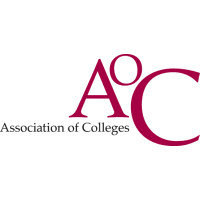By John Widdowson, Principal of New College Durham
For many years, colleges and universities have endeavoured to work together to provide courses and qualifications relevant to students, employers and the wider community. Where these partnerships work well, based on mutual respect and long-term commitment, they benefit both the college and its university partner. However, in many cases, changes in funding and the more competitive environment in higher education (HE) have put pressure on partnerships, sometimes to breaking point. Further problems arise when colleges wish to respond to local employer needs and seek to validate higher vocational qualifications, which may lie outside the expertise or academic strategy of the university.
A core question underpins all these issues. Can a system, developed and refined to produce high quality world class academic qualifications and research, really be made to fit the needs of students and employers seeking higher level vocational skills? Perhaps even more fundamentally, should it? Employers still express concerns about the work readiness of our graduates and colleges complain about the length of time it can sometimes take to validate courses to respond promptly to employer needs.
Rather than bend our existing HE system out of shape and make it unfit for any purpose, perhaps we should step back and consider the benefits of a separate but integrated higher vocational education and training system. It could be designed to meet the needs of employers and students who want qualifications that give them the skills and knowledge to succeed in business and industry. In a speech delivered on 24 April, Vince Cable, Secretary of State at the Department for Business, Innovation and Skills pointed to one way forward when he emphasised the merits of colleges working together to validate and deliver higher level skills-based courses. This reflects the autonomy afforded to similar institutions in other parts of the world.
Building on the ability individual colleges already have to apply for foundation degree awarding powers, such a system would allow seamless progression from lower level vocational qualifications. It would also respond directly to employer needs and, where appropriate, meet the requirements of professional bodies. Legislation to make this a reality should figure in the manifesto of any political party committed to meeting the demands of our economy and the ambitions of our students.
Who needs universities? Of course we all do. But we also need a first class higher vocational education and training system with equivalent standards, which is valued and respected in the same way.
